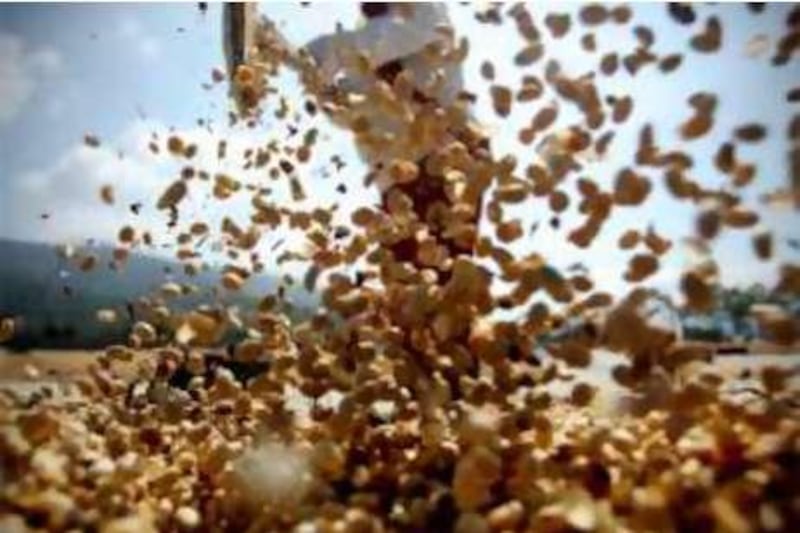Hussein Awada, the owner of Lebanese Roastery in Abu Dhabi, used to give cardamom to his clients free. Those days are gone, for now anyway. The price for the cardamom that Mr Awada imports from Guatemala has rocketed, up to Dh120 (US$32.67) a kilogram from Dh20 a kg a year ago. Similarly, the cost of his arabic coffee, which is 100 per cent arabica, has jumped 10 per cent, from Dh40 to Dh44 a kg.
In the bigger picture, Mr Awada is fortunate: heightened demand globally combined with market forces has pushed up coffee futures by more than 20 per cent in the past four days. The cause is a combination of poor harvests in Central America over consecutive years and speculation by several large fund managers who bet prices would fall and had to cover their positions this week. Arabica futures rose another 1.7 per cent yesterday, to $186 per 60kg bag.
Mr Awada said he refused to raise prices to ensure he retained customers who had been coming to his shops - one on Defence Road and one in Khaldiya - for years. But the increased costs are eating into his margins, which were about 20 per cent last year. This year they are much lower. "It's a chain reaction where everyone is being affected," he said. Still, Mr Awada has managed to curb the effects of the recent peak in prices because he bought in advance after his supplier, with whom he has been dealing for 30 years, provided a report last November, which stated that prices were on the rise.
Others in the coffee business are suffering more severely. "We are not doing any purchasing," said Khalid Mohammed, the manager at Kahrban Dubai Trading, a coffee supply company. "With the business as bad as it is, we have cut back coffee imports. We don't do imports anymore unless we have a confirmed order." Mr Mohammed said his business was down 50 per cent from a year ago, through a combination of higher prices and the broader economic downturn.
Doug Whitehead, a soft-commodities analyst at Rabobank in London, does not believe prices are sustainable at these levels for long. "Although this has caused a fair bit of pain for the roasters, as their margins get squeezed, the majority hold enough inventory that they would be able to pass the price shock relatively well," Mr Whitehead said. Mr Awada hopes he is right and so do his customers. @Email:halsayegh@thenational.ae * Additional reporting by Sarmad Khan





